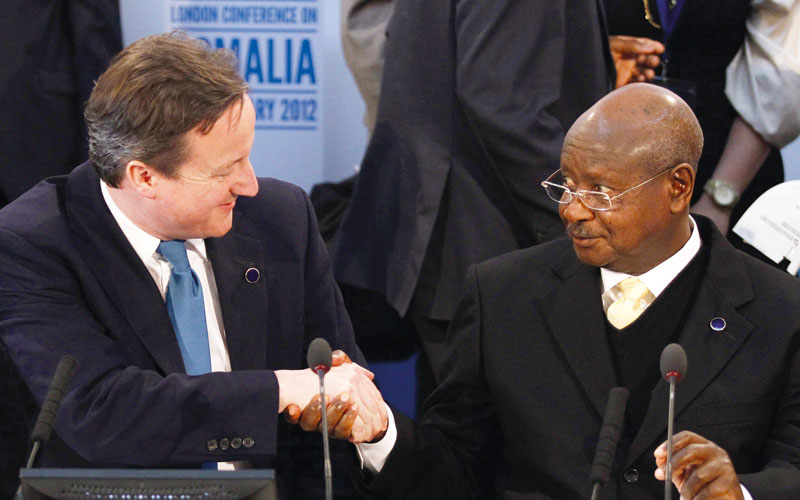Because of its colonial roots in the country, the UK has long shared a close relationship with Uganda. Now the East African country is providing a host of investment opportunities

Ample natural resources and a stable political environment have enabled Uganda to become a popular destination for those seeking to invest in East Africa.
While cash injections into mining, energy and manufacturing developments have more recently arrived from the likes of China and India, there remain strong cultural ties with the UK.
Although Britain has long since left the country following its spell as a colonial master, the links that were forged then are now enabling both nations to make the most of their respective histories.
A shared language and an understanding of the way each other do business is enabling UK-based investors to look to the growing East African nation as a place to prepare future ventures.
Much of the groundwork that has allowed such investments to be made is a result of Yoweri Kaguta Museveni, Uganda’s President since 1986.
In October he is visiting the UK for a second time this year to coincide with The Global African Investment Summit. He will join the presidents of Ghana, Rwanda and Tanzania in turning the international investment community’s attentions to what their nations have to offer.
Mr Museveni admits that although his country is prepared to work with almost any nation to bolster its economy, there is shared ground with the UK. “We can work with anybody, but [especially] the UK, probably because of language and communications,” he says. “If the UK was smart, they could take advantage of the cultural closeness because it is not [as] easy for us to communicate with the Chinese.”
With a population of around 36 million, and a workforce that is largely well educated, Uganda is well placed to benefit from such foreign investments. However, President Museveni says that UK investors need to make the most of their shared heritage, particularly with other foreign powers – notably China and India – already making substantial inroads in the country’s various sectors through investment.
“We can work with anybody,” Mr Museveni says. “We are not interested in who you are, but in money. Europe and Africa are near, and yet we work closer with China, which is very far away. Africa is here, and has 1 billion people. Within the next 20 years, we shall be more than 2 billion, and we are just next-door. Really, our history, language and distance are the reasons for having closer relationships.”
Forging ties could also provide substantial boons for UK-based investors. Dr Emmanuel Tumusiime-Mutebile, the Governor of the Bank of Uganda, says that since the turn of the century, the country’s economy has achieved an average annual real growth of 7 per cent. Sustaining such growth amid a stable macroeconomic environment is at the heart of the government’s – and its central bank’s – plans to attract further investment for public and private infrastructure projects.
Uganda’s trade in goods with the UK reached £81.5 million in 2013 and more than 100 UK companies have set up shop there. Well-known industry leaders have been attracted by its stable economy, low-cost workforce and ample natural resources. The Ugandan government’s commitment to private sector development and attractive investment policies have also been a draw.
On September 11-13, the first visit to Uganda by a Lord Mayor of the City of London took place when the incumbent titleholder Fiona Woolf was accompanied by a high-level trade delegation to underline the growing importance of the Ugandan market to UK businesses. During her visit, the Lord Mayor featured as a guest writer in Uganda’s weekly independent newspaper The Observer, in which she stated: “There are many opportunities for UK businesses within Uganda, not least in its nascent oil and gas sector. With the recent announcement that 6.5 billion barrels of oil have been discovered, there are clearly huge untapped opportunities for investment, partnership and skills transfer to develop this natural resource. UK companies have huge expertise in this area and establishing partnerships will offer economic rewards for both our countries.”
Dr Mutebile adds, “There are many sectors of the Ugandan economy that are potentially attractive for private sector investors.” These range from agro-industries such as food processing to manufacturing sectors that create building and construction materials. Furthermore, markets as diverse as tourism, oil, and telecommunications all offer potential returns.
It seems clear that if UK investors do not make the most of these opportunities, others certainly will.
0 COMMENTS